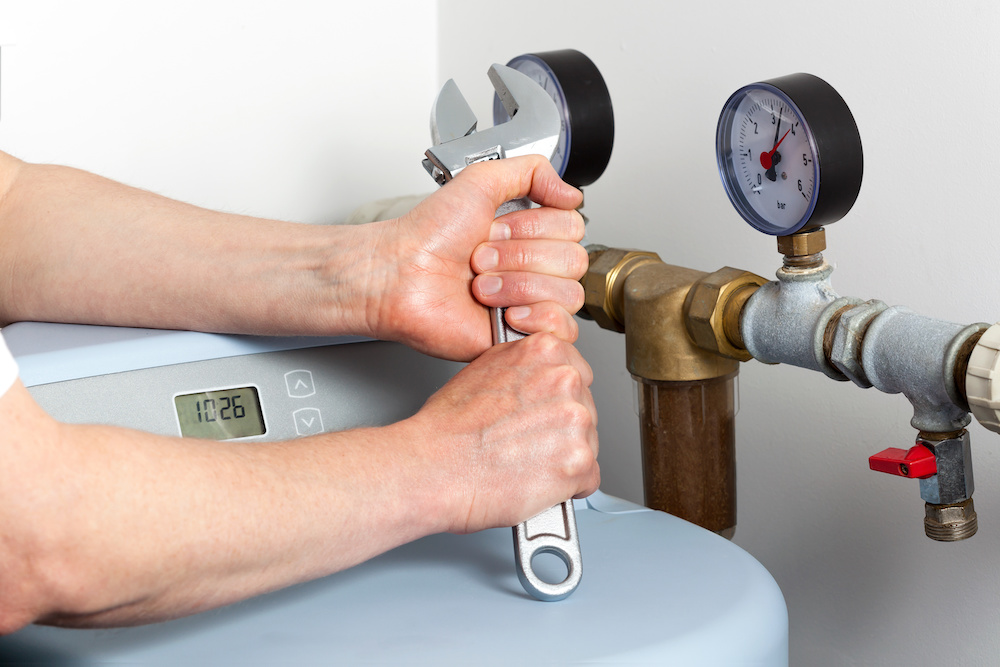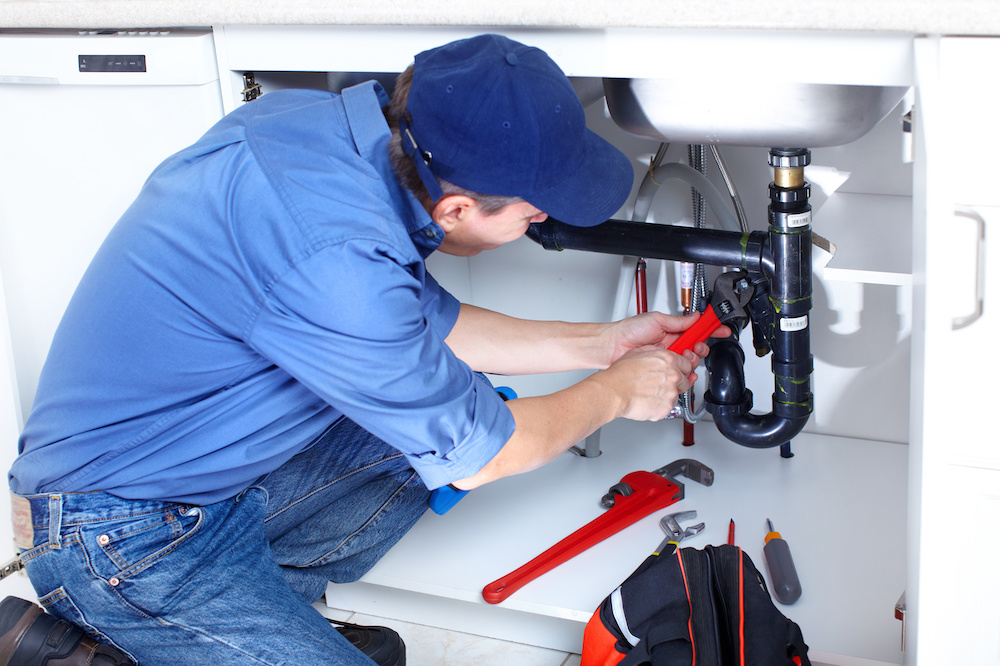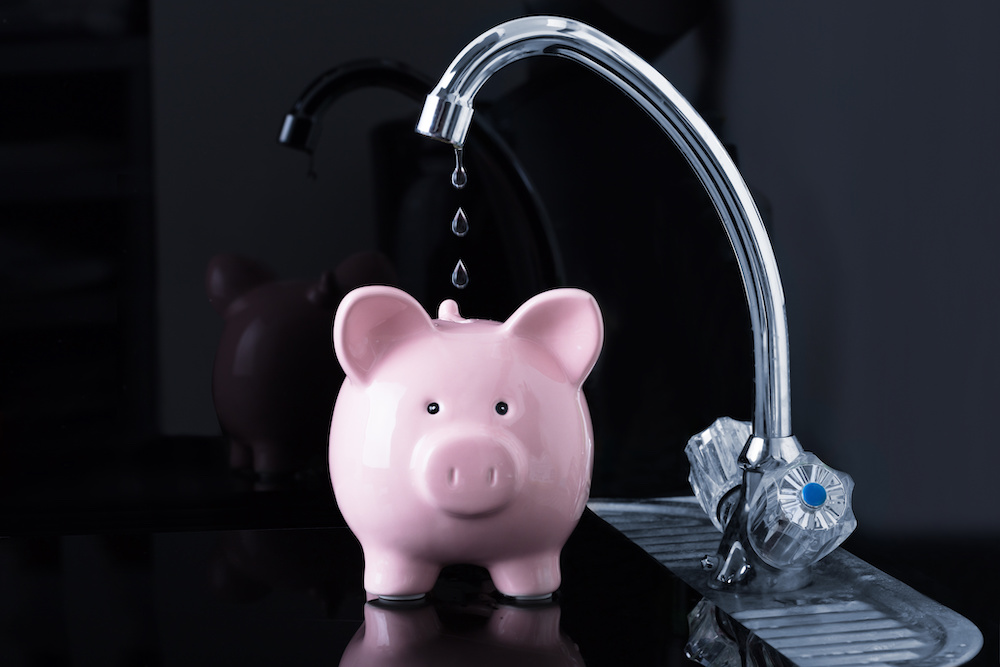First things first, let’s quickly define what a water softener is. Essentially, it’s a device that removes various hard minerals, such as magnesium and calcium, from the water in your home, making it “soft.” Hard water can cause all sorts of problems, from leaving spots on your dishes and glasses to damaging your appliances and plumbing systems over time.
So, why is it important to have a water softener at home? For starters, it can help you save money on things like soap, detergent, and energy bills. Soft water also feels better on your skin and hair, and it can extend the life of your water-using appliances.
Now, you’re probably most interested in the question: “What is the cost to install water softener systems?” Well, it depends on various factors, such as the type of unit you choose, the size of your home, and the complexity of the installation.
Let’s go into more detail about the cost breakdown and what you can expect to pay. I will help you make an informed decision about whether a water softener is right for your home and, if so, how much you can expect to spend on the installation.
DIY Installation
If you’re handy with tools and want to save money, you may be considering a DIY water softener installation. While this can be a good option for some people, weighing the pros and cons before diving in is important.
Pros and Cons of DIY Installation
The main advantage of DIY water softener installation is the cost savings. You won’t have to pay for professional installation, which can be a significant expense. Additionally, if you enjoy DIY projects, you may find the installation process to be a fun and rewarding challenge.
However, there are also some potential downsides to DIY installation.
For one thing, it can be time-consuming, especially if you’re unfamiliar with plumbing and electrical work. You’ll also need to purchase all the necessary materials and tools, which can add up if you don’t already have them on hand.
Finally, if you make any mistakes during the installation process, you could end up causing damage to your electrical and/or plumbing systems, which could be costly to repair.
Materials Needed for DIY Water Softener Installation
Before installing a water softener, you must ensure you have all the necessary materials on hand. Here’s what you’ll typically need:
- Water softener unit
- Water softener resin
- Brine tank
- Plumbing fittings and connectors
- PVC pipes
- Electrical wiring and connectors
- Drain tubing
- Teflon tape
- Tools such as wrenches, pliers, and pipe cutters

Step-by-Step Guide for DIY Water Softener Installation
Here’s a basic guide to the steps involved in a DIY water softener installation:
- Choose a location for your new water softener system. The unit should be installed near your main water line, ideally near your water heater, and it should be close to a floor drain, standpipe, or utility sink. Make sure there’s enough space around the unit for easy access and maintenance.
- Turn off the water supply, and drain the plumbing lines by opening a faucet to reduce water pressure.
- Cut into your main water line and install elbow fittings, following the manufacturer’s guidelines. This will create the necessary bypass for your water softener.
- Attach the bypass valve to your water softener, which will allow you to send water around the unit if you ever need to service it.
- Connect the inlet and outlet ports of the water softening system to the main water line. Use compression fittings or flexible tubing to make the connection, ensuring that the inlet pipe leads to the inlet port and the outlet pipe leads to the outlet port.
- Connect the drain hose to the drain valve fitting on the unit and fasten it using a hose clamp. Extend the drain hose towards an appropriate drain location, ensuring a minimum air gap of 1.5 inches between the hose’s end and the drain opening to avoid cross-connection.
- Attach the brine tank overflow tube, and route it to the same drain or another suitable location, following the same air-gap guidelines as for the drain hose.
- Pour the recommended amount of water softener salt into the brine tank, and fill it with water per the manufacturer’s instructions.
- Plug in the control valve, and follow the manufacturer’s instructions to program the water softener system settings.
- Turn the water supply back on, and slowly open the bypass valve to let water flow through the unit. Check for leaks, and adjust connections as needed.
- Manually regenerate the water softener to remove any air from the system and ensure proper operation.
Congratulations! You’ve successfully installed your water softener system. With a bit of patience and attention to detail, you should now be ready to enjoy softened water in your home.
Cost Breakdown of DIY Installation
When it comes to the breakdown of DIY water softener installation cost, there are several factors to consider.
First and foremost, you need to think about the water softener cost. You can usually find a good, basic model between $300 and $800.
Next, you need to gather the essential materials and tools for installing the water softening system, such as the bypass valve, flexible hoses, and necessary adapters. You might spend anywhere from $100 to $200 on these materials.
Another aspect to consider is the time and effort required to complete the installation. While some people might enjoy a DIY project, others may not be interested in spending several hours on the task or might prefer to leave it to professional water softener installers.
Overall, when you opt for a DIY installation, you could save between $300 and $1,000 when compared to hiring a plumber. While it may take more time and require some research, you can see significant savings if you’re up for the challenge.
Common Mistakes To Avoid During DIY Installation
Installing a water softener system can be a great DIY project to tackle, but there are some common mistakes to avoid. Here are a few:
- Failure to Properly Size the System: Before purchasing a water softening system, measure the water hardness and determine the system size needed to meet your household’s needs.
- Incorrect Installation Location: Ensure that the system is installed in an area that is easily accessible for maintenance and doesn’t get in the way of daily activities.
- Incorrect Plumbing Connections: Make sure to follow the manufacturer’s instructions for plumbing connections and use the appropriate tools and materials. Improper connections can lead to leaks and damage to your home.
- Neglecting to Flush the System: Before using the water softener system, it’s important to flush it to remove any dirt or debris that may have accumulated during installation.
- Not Testing Water Quality: Once you have the water softener installed, test the water quality regularly to ensure that it’s working properly and maintaining the desired level of water softness.
- Failure to Regenerate the System: Water softeners work by removing hardness ions from the water through a process called regeneration. It’s important to set the system to regenerate regularly to keep it functioning properly.
By avoiding these common mistakes, you can successfully install and maintain your water softener system. If you’re unsure about any aspect of the installation, don’t hesitate to consult a professional.
Big Box Store and Plumber Installation
One popular option if you want a water softener installed is to purchase the unit from a big box store and hire a plumber to install it. Let’s discuss the pros and cons of this approach and the factors to consider before purchasing from a big box store.
Pros and Cons of Buying From a Big Box Store and Hiring a Plumber
There are advantages and disadvantages to purchasing a water softener system from a big box store and hiring a plumber for installation.
One of the main advantages is the convenience of purchasing everything in one place. Big box stores often have various water softener units; you can easily compare different models and prices. Also, hiring a plumber can ensure that the unit is installed correctly and according to local codes and regulations.
However, there are also some potential downsides to this approach.
One of the main disadvantages is that you may not have access to the same level of expertise and support you would if you were to purchase the unit from a specialized dealer or installer. Additionally, some big box stores may prioritize affordability over quality, meaning that the units available for purchase may be of a different quality than those available from specialized dealers.
Factors To Consider Before Buying From a Big Box Store
Before purchasing a water softener system from a big box store, there are a few important factors to consider.
One of the most important factors is the quality of the unit. You should research the different models available and look for reviews and ratings from other customers to determine which units are of the highest quality. It’s also important to consider the unit’s size and the specific features and capabilities important to you.
Another essential factor to consider is the warranty offered by the manufacturer. You should look for units with a comprehensive warranty, as this can provide peace of mind if something goes wrong with the unit.
Finally, you should consider the installation process. While hiring a plumber can ensure that the unit is installed correctly, some big box stores may also offer installation services.
You should compare the plumber labor costs to the cost of having the big box store install the unit and consider factors such as experience and expertise when deciding.
Cost Breakdown of Buying From a Big Box Store and Hiring a Plumber
The cost of purchasing a water softener unit from a big box store and hiring a plumber for installation can vary depending on several factors.
On average, you can expect to pay between $600 and $1,500 for a unit and installation. However, this cost can be higher or lower depending on the size and complexity of the installation.
When purchasing a unit from a big box store, you can expect to pay between $400 and $2,500, depending on the quality and size of the unit. Installation costs can range from $200 to $500, depending on the installation’s complexity and the plumber’s experience.

Advantages of Having a Plumber Do the Installation
There are many advantages to having a plumber install a water softener unit in your home. They can ensure that the unit is installed correctly, complies with local codes and regulations, and meets your specific water-softening needs.
By hiring a plumber, you can also save time and effort and avoid the potential headaches of trying to install the unit yourself.
Water Treatment Dealership Installation
If you’re considering purchasing a water softener system, you may also want to consider buying from a water treatment dealership. Here are some of the pros and cons of buying from a dealership and some factors to consider before making your purchase.
Pros and Cons of Buying From a Water Treatment Dealership
One of the main advantages of buying from a water treatment dealership is that you can often find a wider range of water softener systems than you would at a big box store.
Dealerships typically carry a range of products from different manufacturers and can help you select the unit that is best suited to your needs. Additionally, they may offer more personalized service than you would get at a big box store, as they specialize in water treatment and are likely to have more expertise in the area.
However, one potential downside of buying from a dealership is that their prices may be higher than you would pay at a big box store. That is because dealerships typically offer higher-end products and more personalized service, which can drive up costs.
Factors To Consider Before Buying From a Water Treatment Dealership
Before purchasing from a water treatment dealership, there are several factors to consider. First, it’s important to research the company and read reviews from other customers to ensure that they have a good reputation and offer quality products and services.
You should also consider your specific water-softening needs and what type of unit would work best for your home. Factors such as the size of your home, your family’s water usage, and the mineral content of your water can all impact which unit will be most effective.
Finally, you should consider the cost of the unit and the installation services. While a water treatment dealership may offer higher-end units with advanced features, they may also be more expensive.
It’s important to compare prices across different dealerships and consider the long-term cost savings that a high-quality unit may provide.
Cost Breakdown of Buying From a Water Treatment Dealership and Having Them Do the Installation
The cost of buying from a water treatment dealership and having them do the installation can vary depending on the specific unit and services provided. However, here is a general breakdown of what you can expect:
- Water Softener Cost: $500 to $2,500+
- Installation Services: $300 – $1,500+
Remember that these prices may vary depending on the specific unit and services you require. It’s essential to get a detailed quote from the dealership before purchasing.
Advantages of Having a Water Treatment Dealership Do the Installation
One of the primary advantages of having a water treatment dealership do the installation is that they have expert staff trained to install water softener systems properly. They can ensure that the unit is installed correctly and meets all local codes and regulations.
Additionally, many water treatment dealerships offer ongoing maintenance services, which can help prolong the water softener’s lifespan and ensure it continues functioning properly. They may also offer warranties or guarantees on their products and services, giving you added peace of mind.
So, What Is the Cost to Install Water Softener Systems?
The total cost of installing water softener systems in your home can vary depending on your chosen installation process.
Installing the unit yourself can be the most affordable option, but it requires some DIY skills and knowledge. Hiring a plumber can offer convenience and expertise but be more expensive. Buying from a water treatment dealership can provide personalized recommendations and high-quality units but may come with a higher price tag.
When considering the water softener installation cost, it’s essential to factor in not only the upfront cost but also the long-term savings and benefits that a unit can provide. A water softener can help improve the quality of your water, reduce mineral buildup in your pipes and appliances, and even prolong the life of your plumbing system.
If you are unsure which installation option is best for your home, it’s important to do your research and consider factors such as the size of your home, your family’s water usage, and the mineral content of your water.
Additionally, consider the reputation and policies of the company you choose to purchase from and ensure that they offer quality products and services.
Overall, the total cost to install water softener systems can be a worthwhile investment for the health and longevity of your home’s plumbing system. By considering your options and choosing the best installation method for your needs, you can enjoy the benefits of clean, softened water for years to come.

